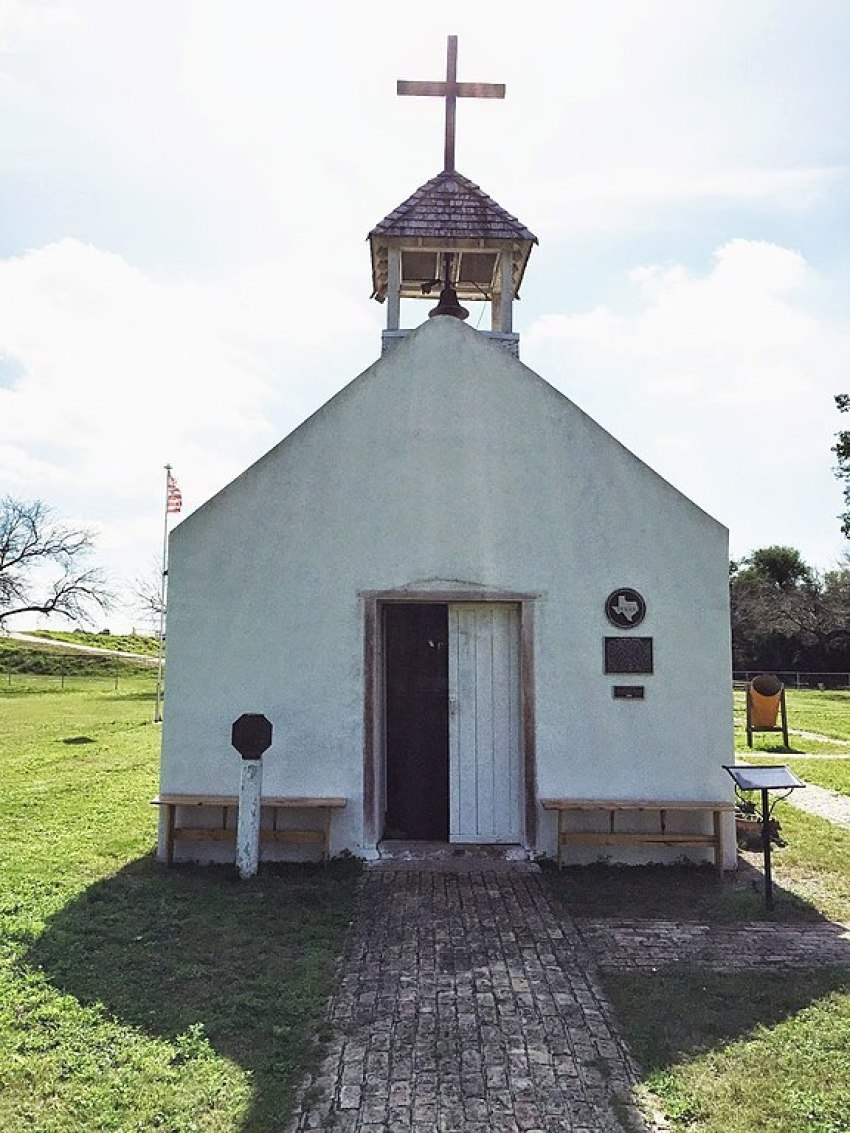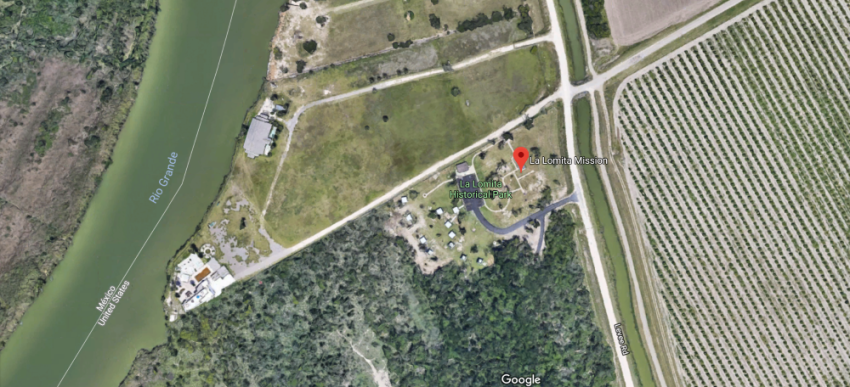Church vs. Trump's wall: Religious freedom fight still looms on Texas border

A historic border church embroiled in a religious freedom court battle with the Donald Trump administration was saved by the spending bill, but could be back in court over emergency funding.
La Lomita Chapel is situated along the banks of the Rio Grande river in Mission, Texas. The administration proposed to build a border wall on top of a nearby levy that would place La Lomita on the Mexico side of the wall and cut it off from congregants and the tourists who visit. (See image below.)

The spending bill signed by President Donald Trump on Friday to prevent another government shutdown specifically denied wall funding near La Lomita. But Trump's use of his emergency declaration powers, announced the same day in order to further wall construction, leaves the property's future uncertain.
A source familiar with the case told Catholic News Agency that there is no precedent on whether the funding restrictions in the spending bill would apply to emergency funding as well, should Trump's emergency funding declaration survive court challenges.
La Lomita had lost its first court fight earlier this month when U.S. District Judge Randy Crane ruled that the federal government may survey the land in preparation for a border wall.
The church, represented by the Diocese of Brownsville, wasn't surprised to lose that case, but believes it has a better chance if the government does try to build the wall.
“But, as the Diocese recognizes, the more substantial burden — which it believes will violate its right to religious exercise under the Religious Freedom Restoration Act — will come if and when the government seeks to take the property for the building of a wall cutting off La Lomita from those who worship there,” Mary McCord, lead counsel for the diocese, told Catholic News Agency.
The Religious Freedom Restoration Act, passed by Congress in 1993, says that the government can only infringe religious freedom if there is a "compelling governmental interest" and it uses "the least restrictive means."
While most RFRA claims have come from small religious groups, such as O Centro Espírita Beneficente União do Vegetal, there have been cases involving Christians. Most famously, the Christian-owned company Hobby Lobby sued for an accommodation to Obamacare's birth control mandate and won at the U.S. Supreme Court.
La Lomita was first built in 1865 and rebuilt in 1899 and the 1920s. The city of Mission took its name from the chapel when it was founded in 1908, according to the city's website.
"La Lomita became an important site for the Calvary of Christ, the Oblate missionaries who rode up and down the Rio Grande Valley visiting widely separated Catholic churches, baptizing newborns, performing marriage ceremonies and blessing the dead," the website states.
The building no longer holds regular services, but tourists visit and learn about its historical significance, and it is sometimes used for events, such as weddings and funerals.



























